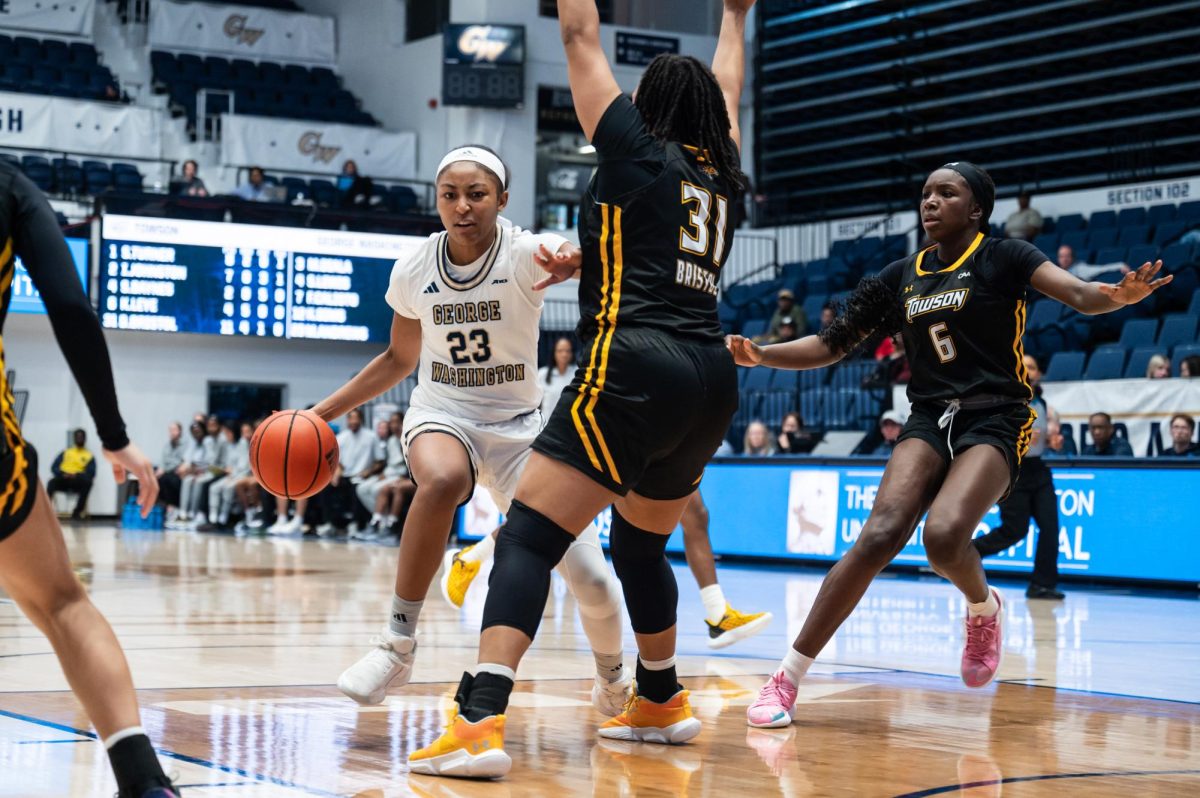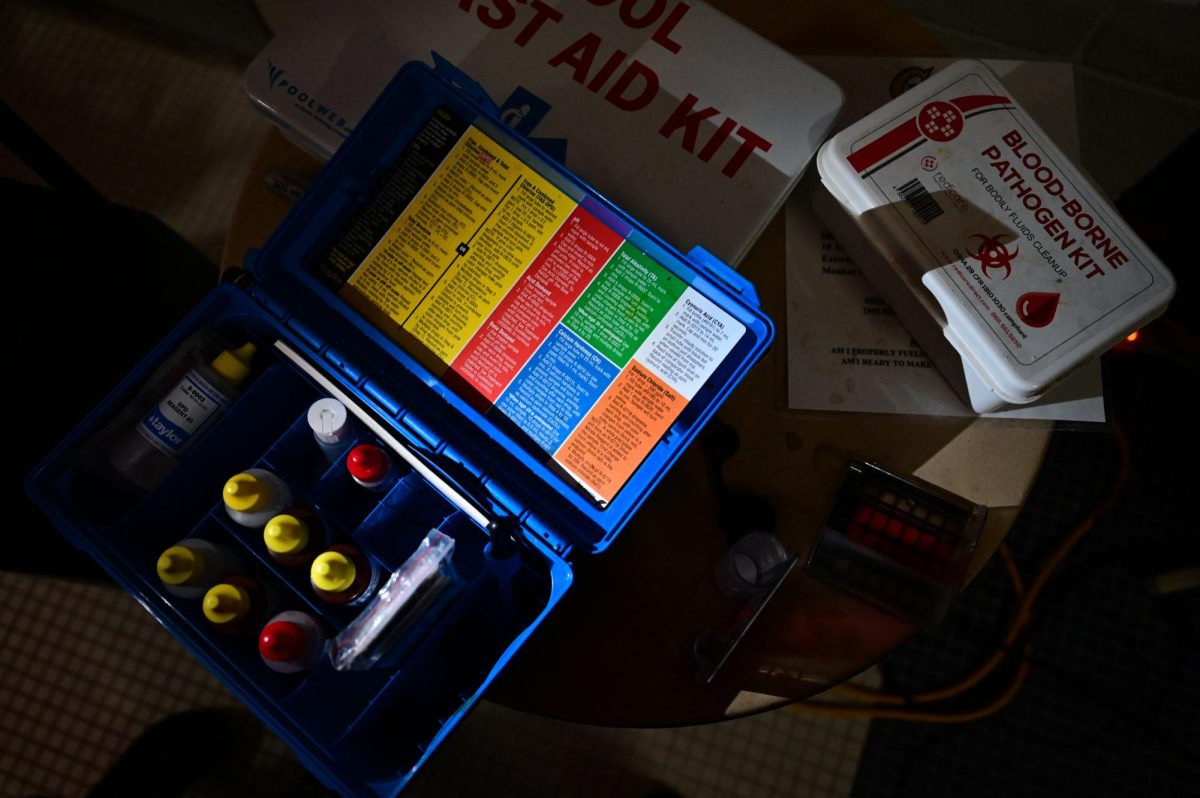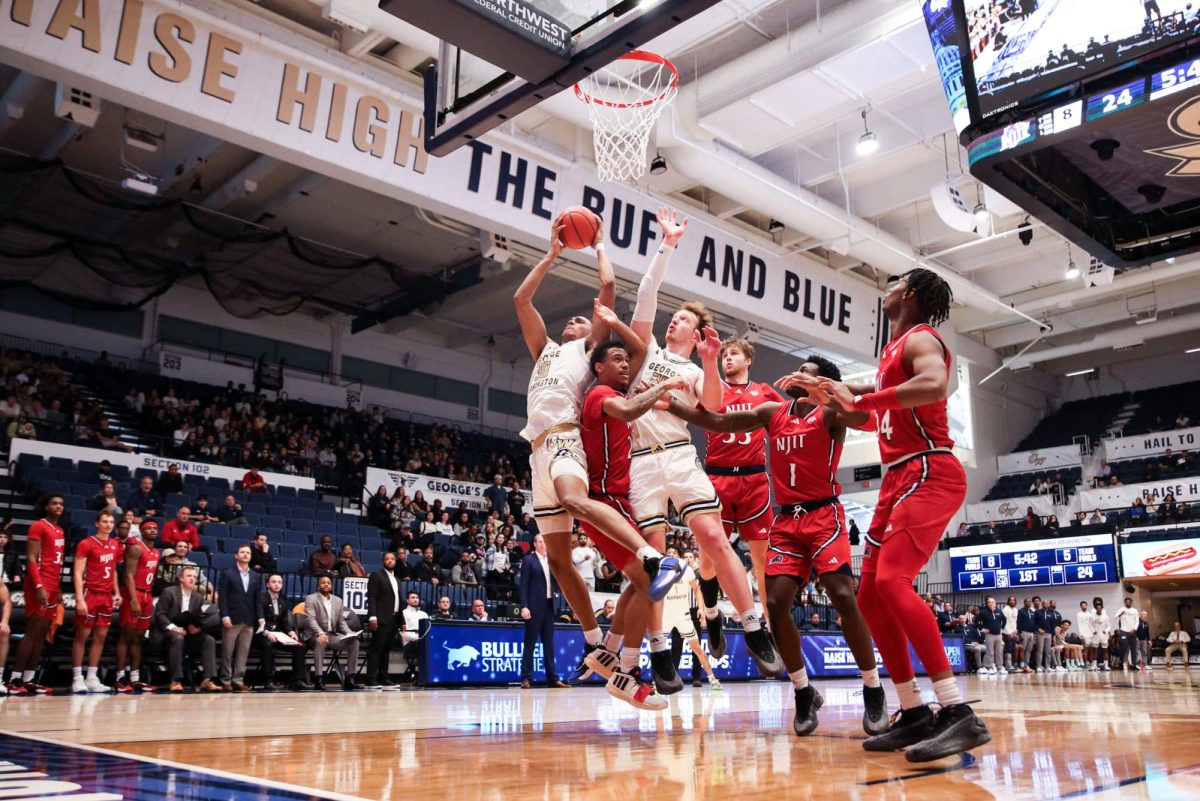A collision spoiled the GW men’s crew team’s trip to Boston for the Head of the Charles last weekend. The collision with a Brown University women’s boat sent a GW rower and a Brown rower to the hospital and rendered both teams unable to compete.
The men were set to compete in the 38-year-old regatta’s most elite field, the men’s championship eight. They would have competed against the top college teams from across the country and national teams from the United States, Australia and Great Britain in the three-mile race down the Charles River in Cambridge, Mass.
Junior Steve Carslon, a bow man for GW, was tossed from his boat along with Brown women’s junior stroke Peggy McKendry when the boats hit each other at full speed. Carlson said he and McKendry were both in the front seats of their respective boats and were tossed when their oars hit each other.
Carlson said he and McKendry were taken to a local hospital for evaluation and observation.
“They were just making sure I didn’t have any spinal injuries,” he said. “It turned out nothing is broken, I just have a bruise on my back.”
McKendry was not so lucky, suffering a cracked rib and some damage to one of her vertebra, Brown women’s rowing coach John Murphy told the Hatchet. He said she was released from the hospital Sunday but was called back for further testing on Monday. The tests did not reveal any further damage, but McKendry will be out for the fall season with her injury.
“I imagine with a rib she’ll be out for a considerable period of time but I hope she’ll be back for the spring,” Murphy said.
Neither coach blamed either team for the incident.
“Both coxswains and crews thought they were in the correct traffic pattern and that is why they assumed their path was clear,” GW crew director Steve Peterson said.
Both shells suffered some damage in the collision, Peterson said, but can be repaired.
Carlson said it was especially disappointing for seniors who will not get another chance to compete at the Head of the Charles, like captain Frank Bottino.
Peterson said sitting the race out did not set back the team’s progress.
“Not competing at the Charles doesn’t set us back. It just doesn’t give us some feedback we like early in the season with regard to how our crews are doing,” he said.
Brown, the team champions in the 2002 NCAA women’s rowing tournament, were upset at being unable to compete.
“I don’t know if it sets our season back but it just something that is very upsetting to everyone,” Murphy said.
Collisions such as this one are not common in collegiate crew races, both coaches said.
“I don’t think it’s that common but it’s something that is always a possibility and you have to be careful,” Murphy said. “I don’t know if people realize how dangerous it can be out there.”
Peterson agreed.
“Thankfully collisions like this are not common. However, the men’s team did suffer a similar collision at the Men’s Atlantic 10 invitational a year ago,” he said.
The Hatchet has recently received complaints from a local rower regarding past accidents from the crew team, but senior women’s rower Molly Hueller said the women’s team has never crashed and the men’s team has crashed before in A-10 competition in Collingswood N.J., but neither incident resulted in injury.
Sunday’s collision occurred in the warm-up area, located just below the starting line of the race. While the Head of the Charles is notorious for crashes because of the tightness of the course and choppiness of the water, the crashes usually involve the infamous Eliot Bridge. But for the first time in memory, The Boston Globe reported, no one crashed into the Eliot Bridge this year.
Carlson said the warm-up area was confusing and race officials told him there were close calls all weekend.
“Below the starting line, it’s really unorganized as far as where you’re supposed to be,” he said. “I wouldn’t say anyone was at fault, it was just poor planing on the organizer’s part,” he said.
“There is no point in assigning blame because both boats were not in the right place,” Hueller said. “It’s just sad they had to travel that far and could not race.”
While coaches were not on the scene, Peterson said the biggest concern, “voiced several times during the regatta,” was the lack of direction in the practice area.
Murphy said he did not want to give an opinion because he was not there, but said he “heard it was chaotic.”






